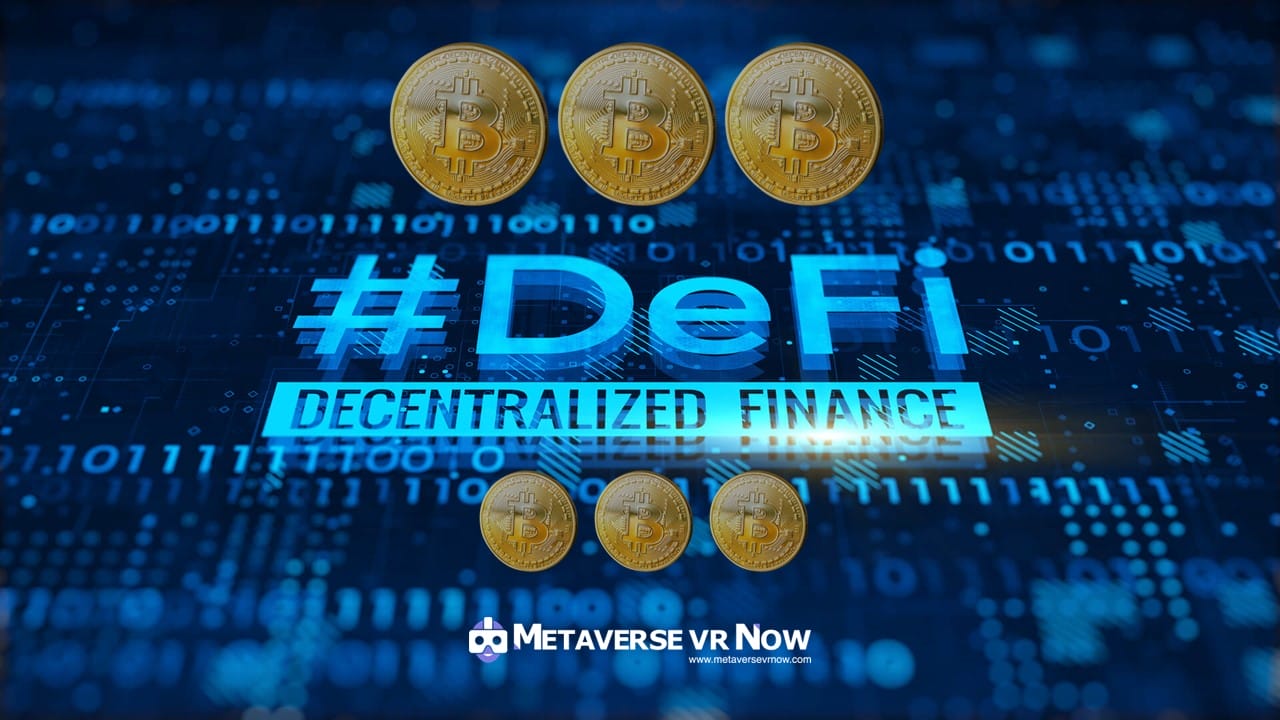DeFi in Crypto stands for Decentralized Finance in Cryptocurrency, and it is a term used to describe the growing ecosystem of financial applications that operate on the blockchain.
DeFi applications are built on top of public blockchains like Ethereum, and they allow users to create contracts and agreements that can be executed without the need for a third party. This makes DeFi applications incredibly secure, as they are immune to censorship and fraud. And because they are decentralized, they can be used by anyone globally, regardless of location or nationality. The DeFi ecosystem is still in its early stages, but it has already seen some impressive growth. In 2019, the DeFi market cap reached $1.5 billion, and it is estimated to grow to $10 trillion by 2025.
What is Decentralized Finance?
The decentralized finance (DeFi) movement is gaining momentum as the go-to solution for anyone looking to break free from the traditional banking system. DeFi is a term used to describe financial applications that are built on top of decentralized networks like Ethereum. These applications allow users to interact with each other without the need for a third party. One of the most popular DeFi applications is MakerDAO, which will enable users to create stablecoins that are pegged to the US dollar. Stablecoins are essential because they provide a way for people to store their value in a currency that isn’t subject to the same volatility as Bitcoin and other cryptocurrencies. Another popular DeFi application is 0x, which allows users to trade tokens directly with each other without having to rely on centralized exchanges.
What is Cryptocurrency?
Cryptocurrency is a digital or virtual currency that uses cryptography to secure its transactions and to control the creation of new units. Cryptocurrencies are decentralized, meaning they are not subject to government or financial institution control. Bitcoin, the first and most well-known cryptocurrency, was created in 2009. Cryptocurrencies are often traded on decentralized exchanges and can also be used to purchase goods and services.
The History of DeFi in Crypto
DeFi is a term used to describe financial applications that are built on top of decentralized networks. These applications can include anything from lending and borrowing to payments and asset management. DeFi in Crypto has seen a surge in popularity in recent years, as developers have begun to build innovative new applications on top of blockchain networks like Ethereum. One of the earliest DeFi applications was MakerDAO, which launched in 2016. MakerDAO allows users to create stablecoins called Dai. Dai is pegged to the US dollar, meaning that it remains stable even in times of market volatility. Other popular DeFi projects include Augur, which is a decentralized prediction market, and 0x, which is a protocol for exchanging tokens. DeFi has several advantages over traditional finance applications. Firstly, it is much more secure and transparent due to the use of blockchain technology.
How Does DeFi Work?
In the simplest terms, decentralized finance is the use of smart contracts and blockchain technology to manage financial assets without the need for a third party. This can include anything from issuing and trading securities to lending and borrowing money. By removing the need for a middleman, decentralized finance in cryptocurrency (DeFi in crypto) can provide a more efficient and cost-effective way of conducting financial transactions. It also helps to reduce the risk of fraud or theft, as all transactions are recorded on the blockchain. There are a number of different projects currently working on developing decentralized finance applications, including Ethereum, Honeycomb, Swell, and 0x.
In the past, centralized organizations such as banks and governments have been in charge of financial systems. This has led to a number of problems, including corruption, inequality, and financial crises. Decentralized finance (DeFi) is an attempt to create a more equitable and secure financial system using blockchain technology. DeFi applications allow users to interact directly with one another without the need for a third party. One of the critical features of DeFi in crypto is its ability to create trustless contracts between parties. These contracts are executed automatically by the blockchain, meaning that there is no risk of fraud or dishonesty. DeFi also allows users to control their own funds and assets, which gives them more autonomy and security. DeFi has already seen significant success in the cryptocurrency world. Applications such as decentralized exchanges and token wallets have become popular among users.
Benefits of DeFi in Cryptocurrency
The cryptocurrency ecosystem is growing with the rise of decentralized finance in cryptocurrency (DeFi in crypto). DeFi is a set of protocols and applications that allow users to create financial products and services on the blockchain. These products and services include decentralized exchanges, lending platforms, and stablecoins.
DeFi has many benefits over traditional finance. First, it is much more secure than traditional finance. Because DeFi products’ foundation is blockchain, they are transparent and cannot manipulate by centralized authorities. Secondly, DeFi products are much more affordable than traditional finance products. For example, on a decentralized exchange, you can trade tokens for a fraction of the cost of trading on a centralized exchange. Finally, DeFi products are more accessible to people all over the world. Anyone with an internet connection can use a DeFi product. DeFi is quickly becoming one of the essential parts of the cryptocurrency ecosystem.
Risks of DeFi in Crypto
There are risks associated with decentralized finance in cryptocurrency (DeFi in crypto). One risk is that projects could be abandoned, leading to lost funds. Another risk is that projects could be hacked, resulting in stolen funds. Additionally, there is a risk that DeFi could be used to manipulate the price of cryptocurrencies. And finally, there is always the risk of a 51% attack, in which a malicious actor manages to gain control of more than half of the network’s hashpower and thus can reverse transactions or halt payments.
Examples of DeFi in Crypto
Cryptocurrency is built on the idea of decentralized finance, or Decentralized Autonomous Organizations (DAO). A DAO is a company or organization that is run without any central authority. In other words, it is a completely self-sufficient entity that exists only through the use of blockchain technology. There are a number of different examples of DAOs in the cryptocurrency world, but here are some of the most notable ones: Ethereum is perhaps the best-known example of a DAO. It is a platform that allows developers to create and deploy decentralized applications. Ethereum also has its own cryptocurrency, called Ether. Another well-known DAO is BitShares. It is a decentralized exchange that allows users to trade cryptocurrencies and fiat currencies. BitShares also has its own currency, called BitsharesX.
The Future of DeFi in Crypto
The cryptocurrency ecosystem is evolving at a rapid pace, with new projects and use cases being developed on a regular basis. Decentralized finance in cryptocurrency (DeFi in crypto) is one of the most exciting and rapidly growing segments of the industry, with applications that could potentially revolutionize how money is used and stored.
There are several DeFi projects currently in development, each with its own unique features. Some of the more notable examples include Dharma, 0x, and MakerDAO. These projects allow users to borrow or lend money using blockchain-based smart contracts without the need for a centralized authority. This can provide several benefits over traditional financial systems, including increased security, transparency, and efficiency. As DeFi continues to grow in popularity, we can expect to see even more innovative applications being developed in the years ahead.
Conclusion: DeFi in Crypto
In conclusion, decentralized finance in cryptocurrency (DeFi in crypto) offers a number of benefits that could make it a powerful tool for cryptocurrency users. These benefits include increased privacy, security, and flexibility. Decentralized finance could also help to improve the overall usability of cryptocurrency. As more people adopt cryptocurrency, it is crucial to provide them with tools that make it easy to use and manage their funds. Decentralized finance may play a key role in making cryptocurrency more user-friendly and accessible to the average person.









